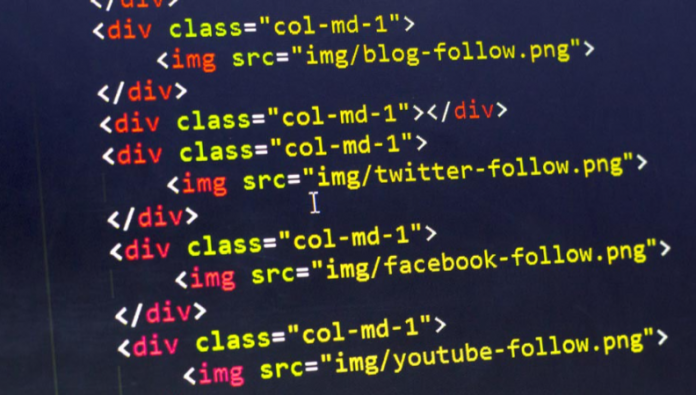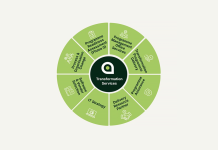Will Callaghan, Product Lead for LocalGov Drupal, explains how collaborative working across 10 councils has provided better services for citizens during the COVID-19 lockdown
The last year has been trying for council web teams up and down the UK. Working as a Delivery Manager on a major council digital transformation project, I saw first-hand the challenges in creating new content and services, often overnight.
Digital transformation in local government
As council offices across the country closed their doors, citizens relied on online services more than ever. Expectations for quality services were already high. I’ve seen during my career a kind of “arms race” where cash strapped local authorities struggle to keep pace with seamless user experiences provided by the likes of Apple, Google and Amazon. In a past role, I was asked: “to make our search as good as Google”. If only…
I’ve also seen councils reinvent the wheel over and over. In almost 15 years working in the public sector, I’ve helped to deliver six content management systems that offered eerily similar functionality. Starting with a clean slate each time, we ended up in remarkably similar places. The technology has improved, but the underlying needs are the same.
In 2019, a group of us decided to not start from scratch again. Instead, we looked at ways of reusing code and patterns that had been created to meet the same needs we had identified. While working from Brighton & Hove City Council, our team built a Drupal 8 publishing platform. When Croydon Council wanted a new website, we decided to use the Brighton & Hove work as a foundation to build on. By 2020 we had created LocalGov Drupal, a shared codebase on Github, which is used by 10 councils at the time of writing. A further nine councils have expressed an interest in joining us.
Collaborative working in local government
LocalGov Drupal happened because of the foresight of our colleagues. People having an idea and not being afraid to share it, with others ready to agree and work together. We were also very lucky to have great senior managers who backed the idea rather than shutting it down. They were brave decisions that have paid off many times over.
We were also helped by MHCLG’s Local Digital Declaration. Many councils have signed this short but powerful statement about collaboration, common standards and the possibility of reusing existing technologies. Finally, the MHCLG Local Digital Fund supported us to find out whether there was a wider interest in collaboration and to refactor code so it was flexible enough to be shared across many different councils.
LocalGov Drupal is now in Beta. We’re enhancing existing features, making it as easy as possible for other councils to get on board and laying foundations for a sustainable future. We’ve seen countless benefits already. Our content formats are delivering better user journeys as they were developed by content designers. Some are built on established GOV.UK patterns, taking advantage of the great work done by central government colleagues. The Drupal theme we offer out of the box is accessible and responsive, unlike many of the legacy council pages we’re replacing.
Most importantly, we’re building each of these features once for use by everyone, taking into account the common needs of our partner councils. We’re starting to pool our product, development and content teams so features arrive more quickly than building alone. On the occasion councils want to add their own features, and our set-up makes it easy to do that. Several have built their own front end themes, and that’s straightforward too.
I’ve also found particularly with content management projects that the budget never covers everything you need to do. When you’ve built the essentials (again), there’s little money left for the game-changing stuff. This hasn’t happened with LocalGov Drupal – yet. We’re able to think bigger and build better. It’s empowering for all concerned.
Council services in lockdown
A good illustration of the benefits happened in the middle of lockdown. We needed to publish changes to council services, and pages ended up being extremely long. Users told us that they were struggling to find the information they needed. Looking for inspiration, we decided to create a version of the London Underground service updates page. Services were listed in tabs down the left, showing at a glance how each was performing. Clicking on any service showed more detail. You can see the page here.
The code was added to LocalGov Drupal and immediately became available to all of the partner councils. This is one small example of how our collaboration has made services better for our citizens, and at a time they needed it most.
LocalGov Drupal is obviously a Drupal project, and we’re learning so much about this open-source technology. But the findings and experiences provided by collaboration are far wider than that. We’re able to easily swap notes about anything to do with our professions, sidestep development cul-de-sacs, and generally get better at our jobs. We started a ‘Skills Sharing’ series on YouTube to highlight some of these conversations.
Closing thoughts
I’m always heartened when colleagues from different councils meet each other for the first time. It happens every time new partners join LocalGov Drupal. Within a few minutes, they’re talking about the exact same needs. Often one council has an idea for a feature that the other hasn’t thought of, and they both want it. That’s how our collaboration started, and long may it continue.











